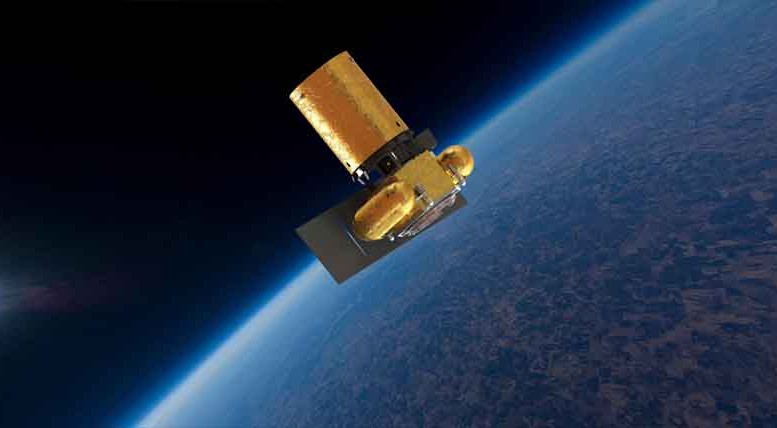Russia’s space agency Roscosmos has condemned U.S. President Donald Trump’s order that encourages citizens to mine the moon and other celestial bodies for commercial purposes.
The government body likened the policy to colonialism and said it “hardly sets the countries to fruitful cooperation.”
“There have already been examples in history when one country decided to start seizing territories in its interest — everyone remembers what came of it,” Roscosmos deputy general director for international cooperation, Sergey Saveliev, said in a statement.
Trump’s order classifies outer space as a “legally and physically unique domain of human activity” instead of a “global commons,” paving the way for mining the moon without any sort of international treaty.
“Americans should have the right to engage in commercial exploration, recovery, and use of resources in outer space,” the document states, noting that the U.S. had never signed a 1979 agreement known as the Moon Treaty. This agreement stipulates that any activities in space should conform to international law.
This is not the first time the U.S. addresses space mining by issuing a law. In 2015, the U.S. Congress passed a bill explicitly allowing companies and citizens to mine, sell and own any space material.
That piece of legislation included a very important clause, stating that it did not grant “sovereignty or sovereign or exclusive rights or jurisdiction over, or the ownership of, any celestial body.”
The section ratified the Outer Space Treaty, signed in 1966 by the U.S., Russia, and a number of other countries, which states that nations can’t own territory in space.
Trump has taken a consistent interest in asserting American power in space, forming the Space Force within the U.S. military last year to conduct space warfare where needed.
The country’s space agency NASA had previously outlined its long-term approach to lunar exploration, which includes setting up a “base camp” on the moon’s south pole.
The U.S. isn’t the first nor the only nation to jump on board the lunar mining train.
Russia has been pursuing plans in recent years to return to the moon, potentially travelling further into outer space. Roscosmos revealed in 2018 plans to establish a long-term base on the moon over the next two decades, while President Vladimir Putin has vowed to launch a mission to Mars “very soon.”
Luxembourg, one of the first countries to set its eyes on the possibility of mining celestial bodies, created in 2018 a Space Agency (LSA) to boost exploration and commercial utilization of resources from near Earth objects.
Unlike NASA, LSA does not carry out research or launches. Its purpose is to accelerate collaborations between economic project leaders of the space sector, investors and other partners.
Thanks to the emerging European network, scientists announced last year plans to begin extracting resources from the moon as early as 2025.
The mission, in charge of the European Space Agency in partnership with ArianeGroup, plans to extract waste-free nuclear energy thought to be worth trillions of dollars.
Both China and India have also floated ideas about extracting Helium-3 from the Earth’s natural satellite. Beijing has already landed on the moon twice, with more missions to follow.
In Canada, most initiatives have come from the private sector. One of the most touted was Northern Ontario-based Deltion Innovations partnership with Moon Express, the first American private space exploration firm to have been granted government permission to travel beyond Earth’s orbit.
Space ventures in the works include plans to mine asteroids, track space debris, build the first human settlement in Mars, and billionaire Elon Musk’s own plan for an unmanned mission to the red planet.
Geologists as well as emerging companies, such as U.S.-based Planetary Resources, a firm helping pioneer the space mining industry, believe asteroids are packed with iron ore, nickel and precious metals at much higher concentrations than those found on Earth, making up a market valued in the trillions of dollars.
— This article first appeared in our sister publication, MINING.com.


Clearly a Tier I priority.
The article on mining on the moon brings back an article I wrote for the Northern Miner in the early 1980s, when the U.S. government gave a grant for research in this area. My piece was tongue-in-cheek, because I thought spending money to learn about mining on the moon at that time was ridiculous. I still think so. However, even then it attracted a tsunami of letters saying how nearsighted I was. As the poster in the office at our Golden Bear mine said 30 years ago: Earth First! We’ll Mine the Other Planets Later